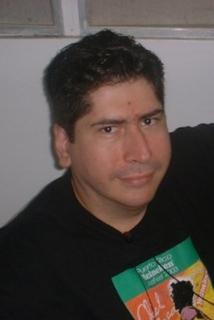LETTER FROM PUERTO RICO
LETTER FROM PUERTO RICO
U.S. election highlights Puerto Rico's 'unequal' status
Published: May 20, 2008
SAN JUAN, Puerto Rico: From San Juan's streets to muddy backroads that skirt Puerto Rico's coastal farmland, backers of the two Democratic U.S. presidential candidates, Hillary Rodham Clinton and Barack Obama, are wooing voters with dueling salsa and reggaeton tunes, thousands of flags and placards, and convoys of loudspeaker trucks and honking cars.
The Democratic race has made voters in this U.S. commonwealth more passionate - and relevant - than they have been in decades. The contest casts a spotlight on the question that has festered at the center of Puerto Rican politics for years - U.S. statehood, independence or status quo? - even as it cuts across the debate by uniting normally warring partisans.
"This has been an experiment in local bipartisanship," says Kenneth McClintock, the pro-statehood president of the Puerto Rican Senate, who shared the backseat of a car and a newfound friendship with a pro-commonwealth adversary as they campaigned last week alongside Clinton's daughter, Chelsea.
The four million residents of these three islands located 1,000 miles, or 1,600 kilometers, southeast of Florida are hosting the biggest remaining Democratic contest of the primary season on June 1, awarding 63 delegates, which is more than 27 of the 50 states.
While Puerto Ricans, who are U.S. citizens, help crown national nominees, their commonwealth status prevents them from casting ballots in the November presidential election.
"It's ludicrous that people can participate in selecting a candidate for whom they cannot vote," says Fernando Martín of the Independence Party of Puerto Rico, which is organizing a protest march for primary day. Other politicians are calling for a boycott of the vote.
Clinton, 60, is favored to win here, thanks to greater name recognition and involvement in hurricane relief, a base closure and legislation to resolve Puerto Rico's status. The New York senator's supporters hope high voter turnout and a big winning margin might boost her long-shot nomination chances.
Obama, 46, is a former Hawaii resident who says he understands the islanders' concerns. He appeals to many Puerto Ricans who say they want change nationally.
The inequity in Puerto Rico's separate-and-unequal status within the United States is especially stark in wartime. On a per capita basis, it has sent more active duty forces to Iraq and Afghanistan than all U.S. states except Nevada, according to Defense Department figures. Still, its people have no voice in choosing their commander in chief.
"We send thousands of our soldiers abroad to fight for democracy: One man, one vote," says Luis Fortuño, the territory's representative in Congress and a delegate for Senator John McCain of Arizona, 71, who swept the Feb. 24 Republican caucus. "We have still not achieved that same democratic representation."
Spain ruled Puerto Rico from 1493 to 1898, when the United States took over. It has a Constitution, and its people elect a local Legislature and governor. Higher laws are made in Washington, where its sole representative does not have a vote in Congress, which ultimately has the power to determine Puerto Rico's fate.
The dominant parties are not Democrats and Republicans, although they are known as "blues" and "reds." The blues, or statehooders, long to join the United States as an equal. Reds, or commonwealthers, argue the current system offers cultural autonomy and tax benefits.
In nonbinding local plebiscites in 1967, 1993 and 1998, advocates for statehood and independence were in the minority. While votes for independence never exceeded 4.4 percent, support for statehood grew to 46.5 percent from 39 percent during the period.
Pedro Rosselló, a Clinton supporter who is a senator and former governor from the pro-statehood party, says that if Puerto Rico were a state, it would have two U.S. senators and at least six representatives. Rosselló sent a complaint to the Justice Department last month alleging that denying Puerto Ricans a vote for president violated their civil rights.
Clinton and Obama both support Puerto Rican self-determination. Clinton has promised elections to resolve the issue during her first term. Obama has said that he is open to creating a local constitutional assembly to define Puerto Rico's future.
Eduardo Bhatia, an Obama supporter with the pro-commonwealth party, says the race has forced him to bridge a red-blue divide, just as Obama preaches. "It's a funny mix, because we otherwise hate each other, but we're working together for Barack Obama," he says.
In the shade of a century-old San Juan marketplace on a recent afternoon, troubadour music wafts from a bar, while friends wash down octopus salad with beer under a siesta-inducing sun. Many show off their voter-identification cards when asked about the primary, though a few snort, calling the election a farce.
"They'll say anything to get our votes, but they won't do anything for us," says José Raffucci, 79, a retired lawyer who recalled Jimmy Carter winning Puerto Rico's Democratic delegates in 1980 with votes from pro-statehood supporters.
"The best that would happen is if they would leave us alone," he says, waving a hand-rolled cigar.
Another evening at a restaurant famous for Puerto Rico's signature dish of mofongo, plantains mashed with meat and vegetables, a group of mostly young professionals supporting Obama celebrated his victory in North Carolina and his seeming march toward the nomination.
Carlos Pastrana Torres, 34, a lawyer, says he wishes he could vote in November, although he acknowledges that whoever is elected president probably won't be able to change Puerto's Rico's status. Pastrana says that's O.K.
"If you squeeze the most pro-American Puerto Rican hard enough, he'll say he's Puerto Rican" at heart, Pastrana says with a shrug. "The status question is out of our hands."



0 Comments:
Publicar un comentario
<< Home